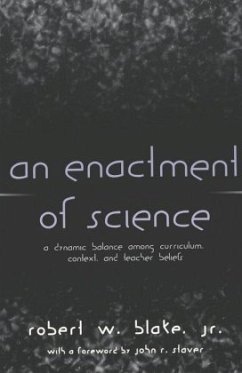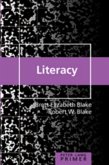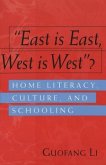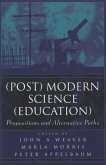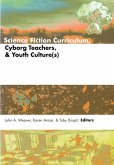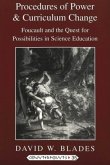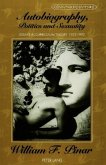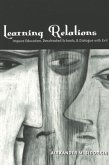An Enactment of Science: A Dynamic Balance Among Curriculum, Context, and Teacher Beliefs examines the specific role of an urban sixth-grade teacher as she engages her students in the learning of science. With a four component model of curriculum enactment (curriculum, context, teacher beliefs, and enactment) as a guiding framework for inquiry, this book addresses an essential question in contemporary science education: Is exemplary science teaching a process of "traditional" practices, "progressive" practices, or, an eclectic combination of both, constituting some notion of a middle ground? Also examined is the teacher's explicit process of coaching students in the use of social skills as part of the content of science as she guides students toward successful cooperative group work and collective and individual problem solving.
Robert W. Blake, Jr., suggests that pre-service and in-service teachers may want to evaluate how closely their beliefs about the curriculum, context, and teaching match the reality of their classroom situation with the potential of altering one (the curriculum) or the other (their beliefs) to enhance the enactment of science. Also, explicit teacher modeling of social skills may serve useful for students to act independently of the teacher as they engage in science activities. Finally, teachers may consider their practice a balance between traditional and progressive modes of teaching, finding what is most useful are components from both frameworks.
Robert W. Blake, Jr., suggests that pre-service and in-service teachers may want to evaluate how closely their beliefs about the curriculum, context, and teaching match the reality of their classroom situation with the potential of altering one (the curriculum) or the other (their beliefs) to enhance the enactment of science. Also, explicit teacher modeling of social skills may serve useful for students to act independently of the teacher as they engage in science activities. Finally, teachers may consider their practice a balance between traditional and progressive modes of teaching, finding what is most useful are components from both frameworks.
"Robert W. Blake, Jr., thoughtfully portrays and interprets the considered effort and practical enactment of a dedicated science teacher. In so doing he sheds light on the practice of teaching, the multitude of influences on teachers, and the need to be ever-mindful of the central curriculum question: What is worth knowing and experiencing?" (William H. Schubert, Professor of Education, University of Illinois at Chicago; Vice-President of the American Education Research Association; President-Elect, Society of Professors of Education)
"Too often, the worlds of teachers come to us in segmented pieces in scholarly journals, or through a few quotes in a book. This warm and clearly written book is an exception. Through the words of Robert W. Blake, Jr., we are introduced to Donna, an exceptional teacher, as she goes about the daily work of introducing her six-graders to the wonders of science. Too often, examples of powerful pedagogy are confined to suburban schools with middle-class populations, well endowed with resources, and rich in the kind of cultural capital schools value. Not so here, Donna works in a diverse urban environment with children others would label as 'disadvantaged.' Here we find a teacher who believes that children should have no opportunity to fail; a teacher who believes that while content has value, cultivating inquiring habits of mind is more enduring; a teacher who sees herself as enabling her students to figure out who they are, where they are going in life, and how best they can maximize their unique gifts. Furthermore, Donna values social justice as an aim of teaching with action as its outcome.
The detailed portrayal in this book unveils the complex choreography involved in balancing a given curriculum, mandated assessment, and all of the foregoing ambitions in a persuasive enactment of science instruction. For anybody who believes that teaching can be reduced to simplistic prescriptions, this book is a must read, and it islikewise for teachers who are struggling to balance their design to be humane and just in their prac-tice with increasing demands from external curriculum and accountability pressures." (Michael O'Loughlin, Education Studies and Derner Institute of Advanced Psychological Studies, Adelphi University, New York)
"Too often, the worlds of teachers come to us in segmented pieces in scholarly journals, or through a few quotes in a book. This warm and clearly written book is an exception. Through the words of Robert W. Blake, Jr., we are introduced to Donna, an exceptional teacher, as she goes about the daily work of introducing her six-graders to the wonders of science. Too often, examples of powerful pedagogy are confined to suburban schools with middle-class populations, well endowed with resources, and rich in the kind of cultural capital schools value. Not so here, Donna works in a diverse urban environment with children others would label as 'disadvantaged.' Here we find a teacher who believes that children should have no opportunity to fail; a teacher who believes that while content has value, cultivating inquiring habits of mind is more enduring; a teacher who sees herself as enabling her students to figure out who they are, where they are going in life, and how best they can maximize their unique gifts. Furthermore, Donna values social justice as an aim of teaching with action as its outcome.
The detailed portrayal in this book unveils the complex choreography involved in balancing a given curriculum, mandated assessment, and all of the foregoing ambitions in a persuasive enactment of science instruction. For anybody who believes that teaching can be reduced to simplistic prescriptions, this book is a must read, and it islikewise for teachers who are struggling to balance their design to be humane and just in their prac-tice with increasing demands from external curriculum and accountability pressures." (Michael O'Loughlin, Education Studies and Derner Institute of Advanced Psychological Studies, Adelphi University, New York)

